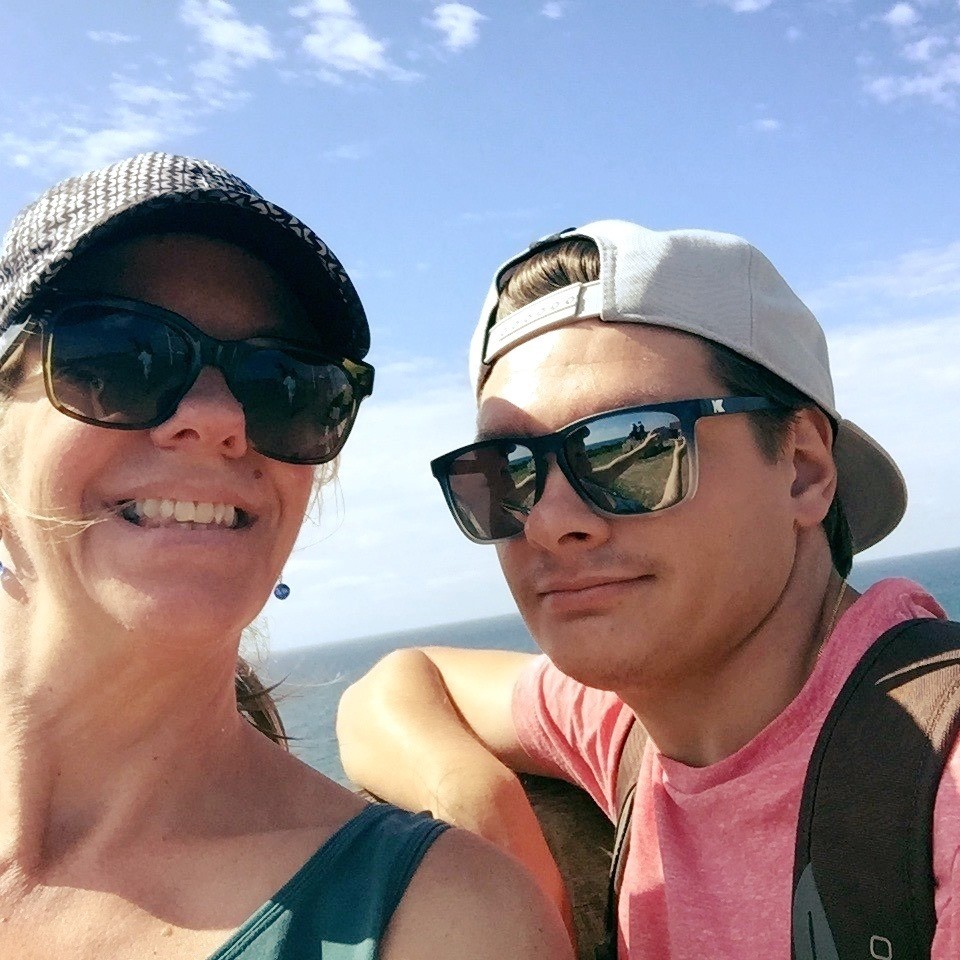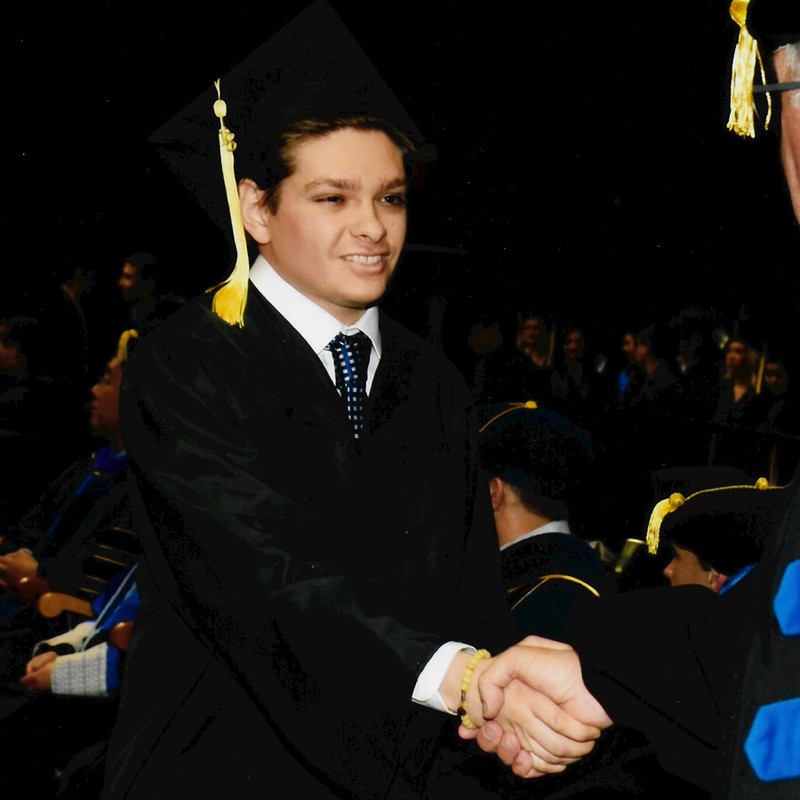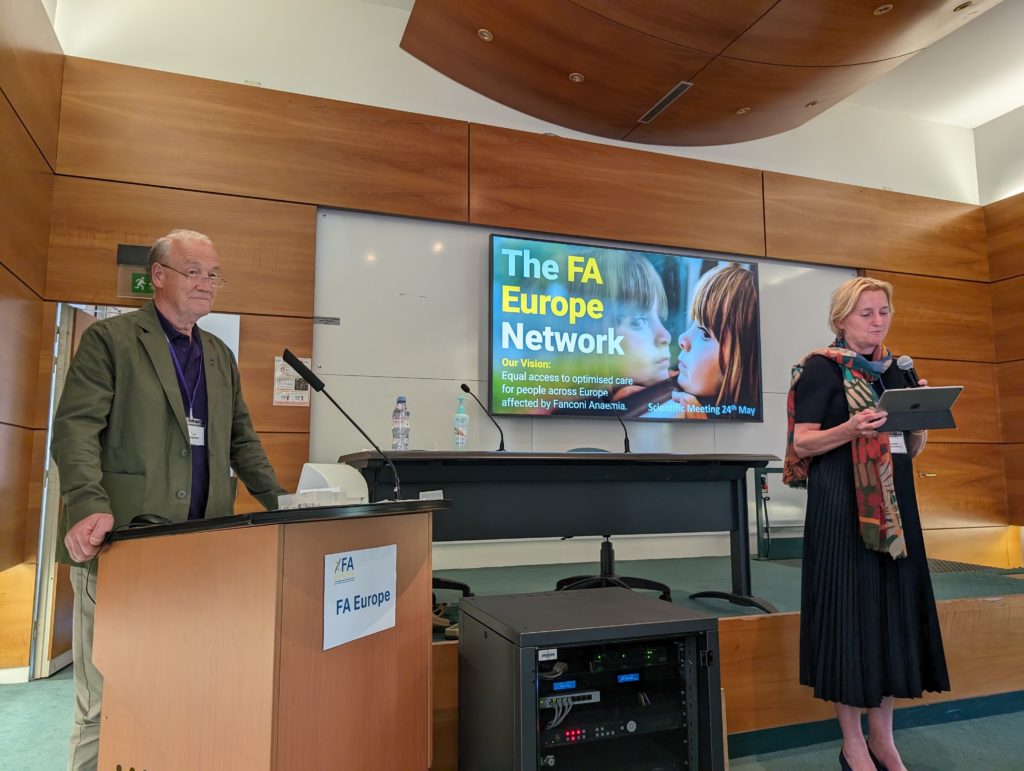Do you make resolutions for the New Year? I used to, but they wouldn’t last very long, so I found myself making new, monthly resolutions. This technique is a variation of a technique I learned in my twenties. My employer paid for several management training courses. One course focused on time management. It was called Priority Management. To get perspective, we had to draw a line which represented our life span, and then put a mark on it which showed where we were relatively in our personal life span. Because I was around 28 years old, and I figured I’d live to be about 90, mine looked like this:

Recently I was talking with my son Duncan, who is 23, and he said he’s living his life as if he will live to be 30. Duncan’s life line looks like this:

That low number is not a result of Duncan being dramatic or pessimistic. He’s trying to be realistic given that he has Fanconi anemia (FA). This makes him 500-700 times more likely to get cancer than people in the general population.
This statistic is BRUTAL! It’s HEARTBREAKING! It’s OVERWHELMING!
Yes, I am yelling. I am crying. It is crushing to me and it’s not even my timeline. While I was barely beginning my adult life at 28, my son may be near the end of his, struggling with quality of life. For most parents it’s virtually a given that their children will outlive them. It’s a common expectation that our children live easier and more fulfilling lives than we do.
But those expectations are not a given for Duncan. Those expectations are not even so much a dream in Duncan’s case. They are more like a fantasy because like all people with FA, he is extremely likely to experience bone marrow failure and cancer that could end his life prematurely. Writing that last sentence feels like a bit of a betrayal of hope and I hated writing it. As his mom, I wish I could give him more days. I’d give him mine if I could. But that’s not possible. I can only resolve to give some of my time to try to raise funds for research which could ultimately give him those days.
We all know someone who has battled cancer and maybe even lost their battle eventually. You may have even fought that battle yourself, and maybe you are still in the trenches. Wouldn’t you love to help prevent other loved ones from having to fight that fight? Some people afflicted with FA have had over 100 cancers, so you can see why FA is a model disease for cancer research.
Donating to the Fanconi Anemia Research Fund (FARF) can give you a sense of taking a bit of control over cancer. By giving, you land a veritable punch square in cancer’s face. Wouldn’t punching something so evil feel really good?
Donating to FARF is also a logical thing to do. Think about how much you spend on your health every year. How much of that is for paying for insurance to cover the treatment of an illness or injury you might contract, or to pay for medicine for a condition you already have? How much of what you pay goes to medication to treat the side effects of other medications? And then compare that with how much you put toward maintaining your health and preventing illness. Let’s say we pay 80% for treatment and 20% for prevention. It seems to me if we evened out or flipped this distribution – if we resolve to spend more proactively on potential health issues by funding research into prevention and cures – we would definitely spend less overall in the long run for our health.

Nancy and Duncan Nunes
Dreams can come true
It happens. Not every day, but sometimes they do and they make movies about these inspirational and heartwarming stories. Dreams come true because someone takes action, not because of divine intervention or magic or good luck. Dreams are less likely to come true if we don’t believe in them. They can come true if we persistently work at them. We must befriend them, feed them, and fund them.
As a country, it seems we spend billions of dollars on cancer treatments every year, yet only a fraction on cancer research. We are funding the cancer treatment industry, not the cancer cure and prevention industry. I dream that all cancers will be 100% curable, and that precancerous cells can easily be detected and treated prior to Stage 1. And of course, I dream that Duncan’s FA will be cured and he can have a normal life timeline.
Duncan graduated from college last year with a degree in Cell and Molecular Biology. He has been working with a team at the University of Rhode Island on, you guessed it, FA research. His goal is to have his doctorate degree and have a career researching FA. His resolve is to make an impact for the world, for his friends, and for himself.

Duncan graduates college
Writing this letter is painful, maddening, and slap-in-the-face real. Yet, I had to write and send it to have any hope that you would read it. Because if you read it, then maybe you will feel at least a little of Duncan’s angst. And if you feel his angst and his resolve, then maybe you will resolve to do something to help ease it. FA is not contagious, but I hope the inspiration and resolve to CURE it is.
Please help fund FA research.
Please help prevent and cure cancer.
Please help Duncan live his dreams.
Whatever amount you can donate, please be assured that it will be greatly appreciated by the FA community and will most definitely be spent in a fiscally responsible way.
With deepest gratitude,
Nancy Nunes




